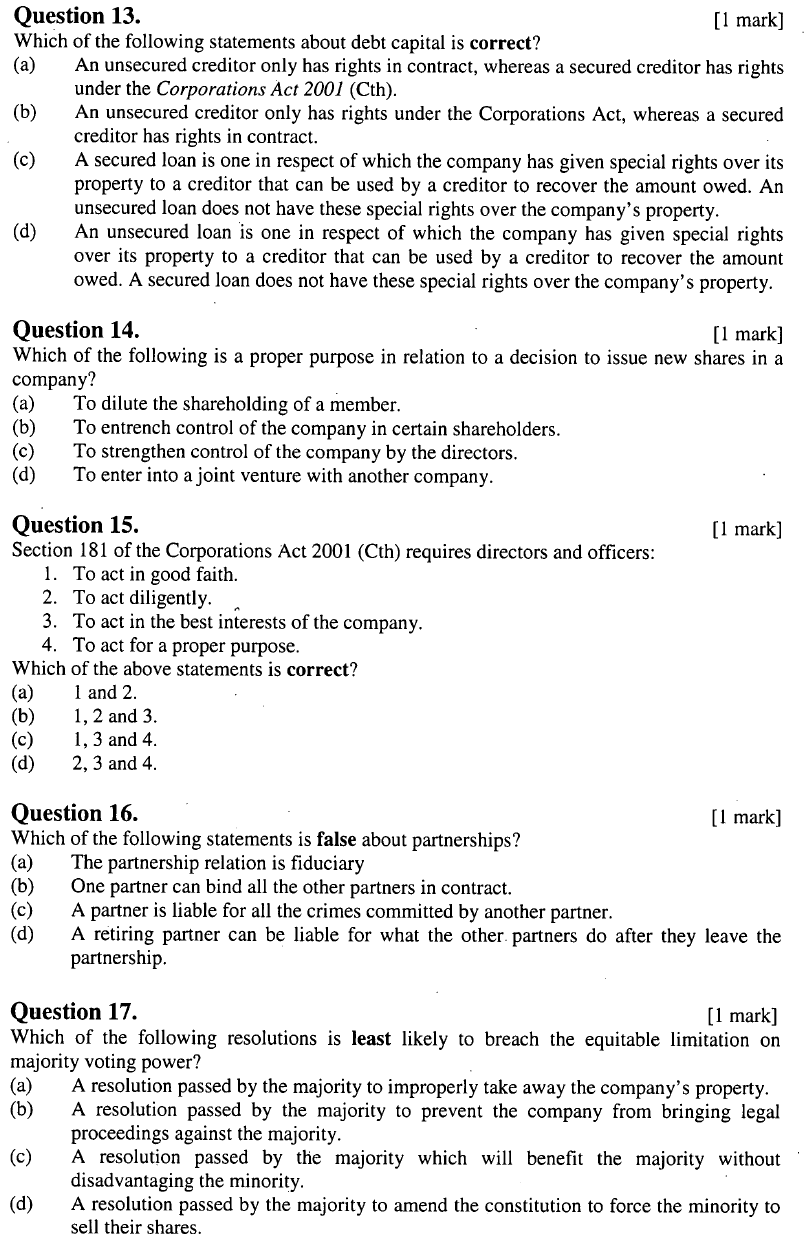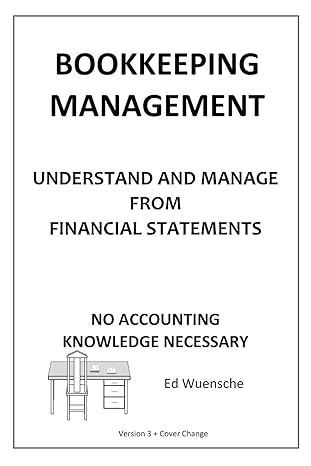
Question 13. Which of the following statements about debt capital is correct? (a) [1 mark] An unsecured creditor only has rights in contract, whereas a secured creditor has rights under the Corporations Act 2001 (Cth) An unsecured creditor only has rights under the Corporations Act, whereas a secured creditor has rights in contract A secured loan is one in respect of which the company has given special rights over its property to a creditor that can be used by a creditor to recover the amount owed. An unsecured loan does not have these special rights over the company's property. An unsecured loan is one in respect of which the company has given special rights over its property to a creditor that can be used by a creditor to recover the amount owed. A secured loan does not have these special rights over the company's property (b) (c) (d) Question 14 Which of the following is a proper purpose in relation to a decision to issue new shares in a company? () (b) (c) (d) mark] To dilute the shareholding of a member To entrench control of the company in certain shareholders To strengthen control of the company by the directors. To enter into a joint venture with another company Question 15 Section 181 of the Corporations Act 2001 (Cth) requires directors and officers: 1. To act in good faith. 2. To act diligently. 3. To act in the best interests of the company. 4. To act for a proper purpose [ mark] Which of the above statements is correct? 1 and 2 1,2 and 3 1,3 and 4 2, 3 and 4 () (b) (c) (d) Question 16. Which of the following statements is false about partnerships? (a) (b) (c) (d) partnership mark] The partnership relation is fiduciary One partner can bind all the other partners in contract A partner is liable for all the crimes committed by another partner A retiring partner can be liable for what the other partners do after they leave the Question 17 Which of the following resolutions is least likely to breach the equitable limitation on majority voting power? A resolution passed by the majority to improperly take away the company's property mark] () (b) A resolution passed by the majority to prevent the company from bringing legal proceedings against the majority A resolution passed by the majority which will benefit the majority without disadvantaging the minority. A resolution passed by the majority to amend the constitution to force the minority to sell their shares (c) (d)







